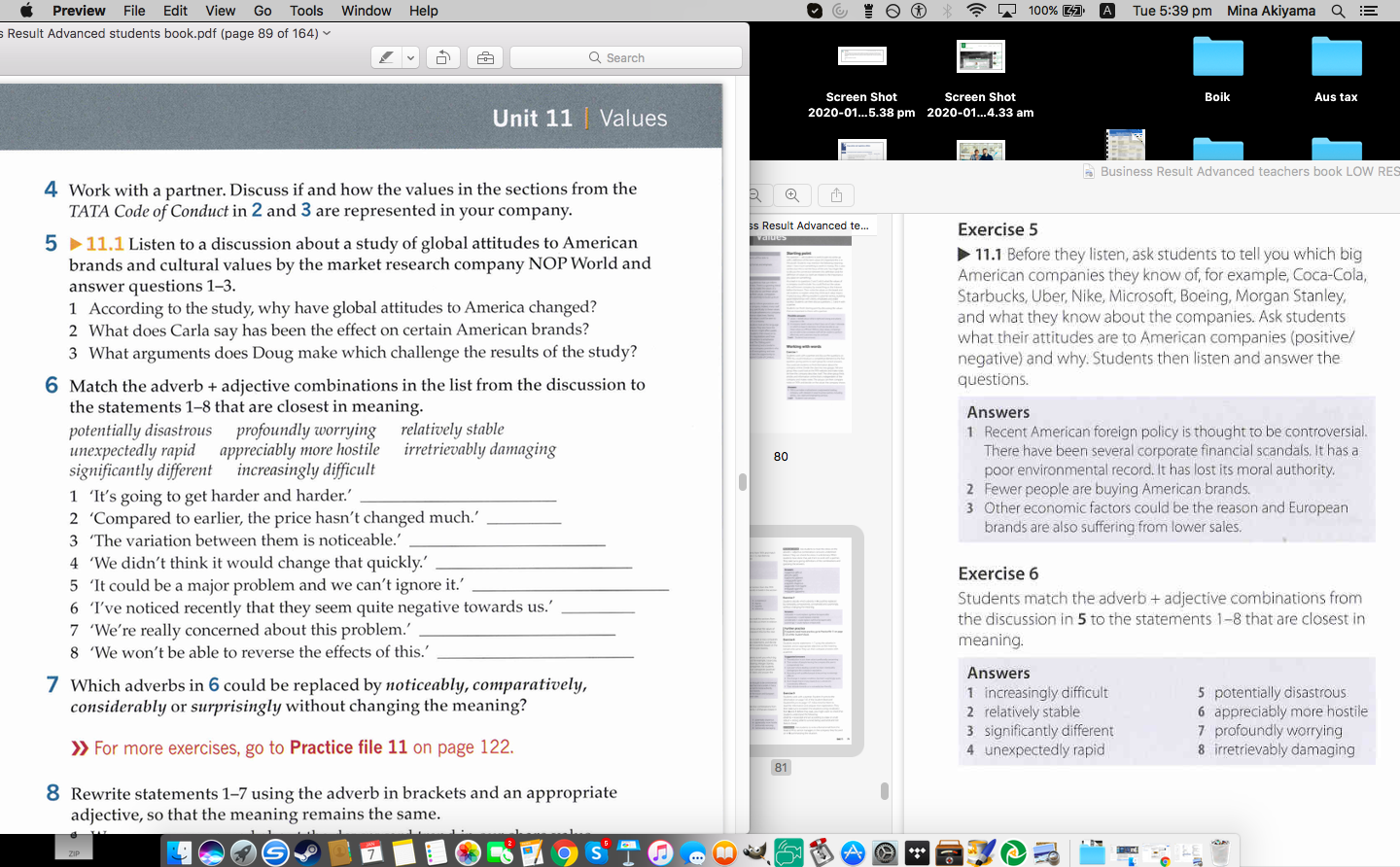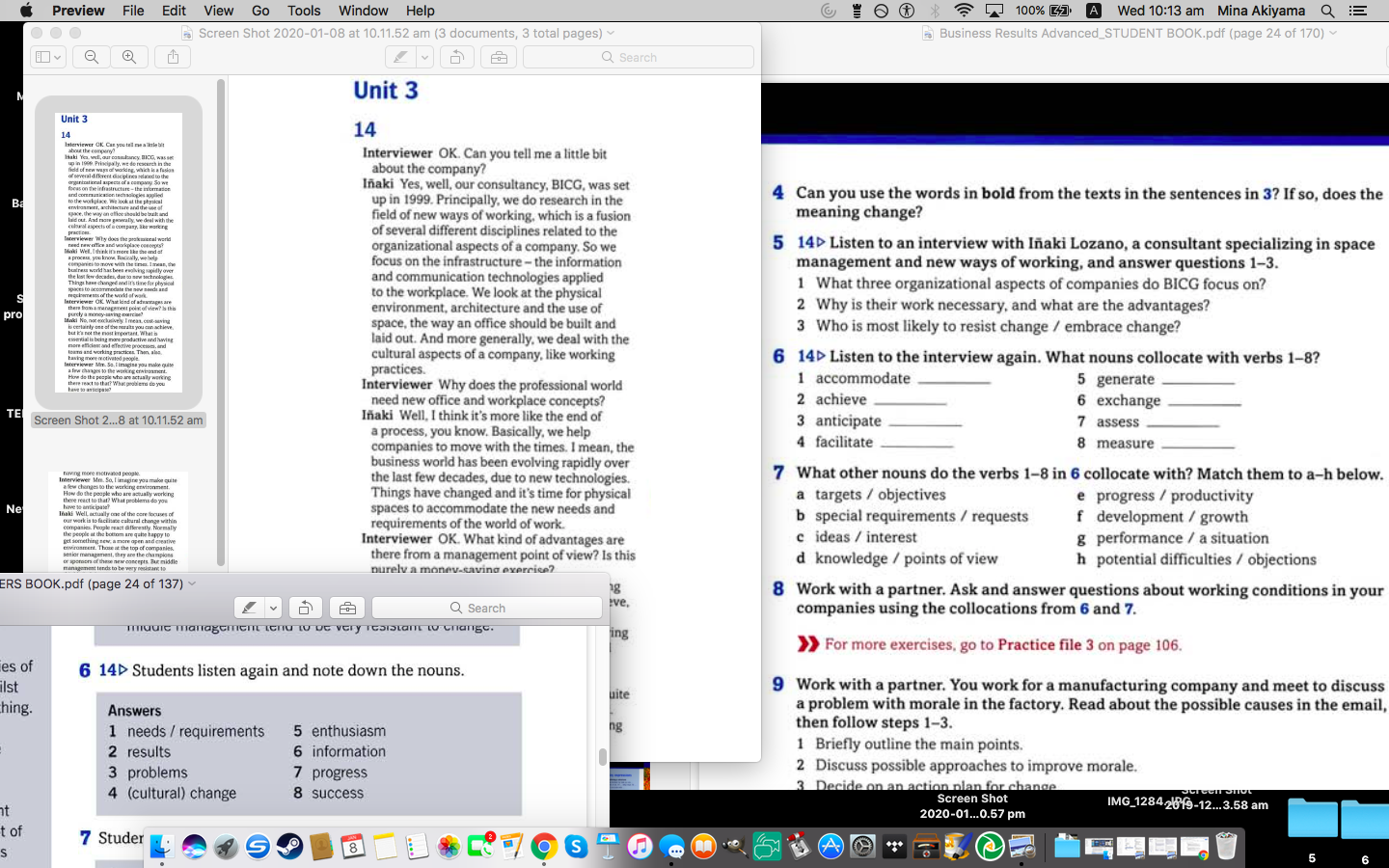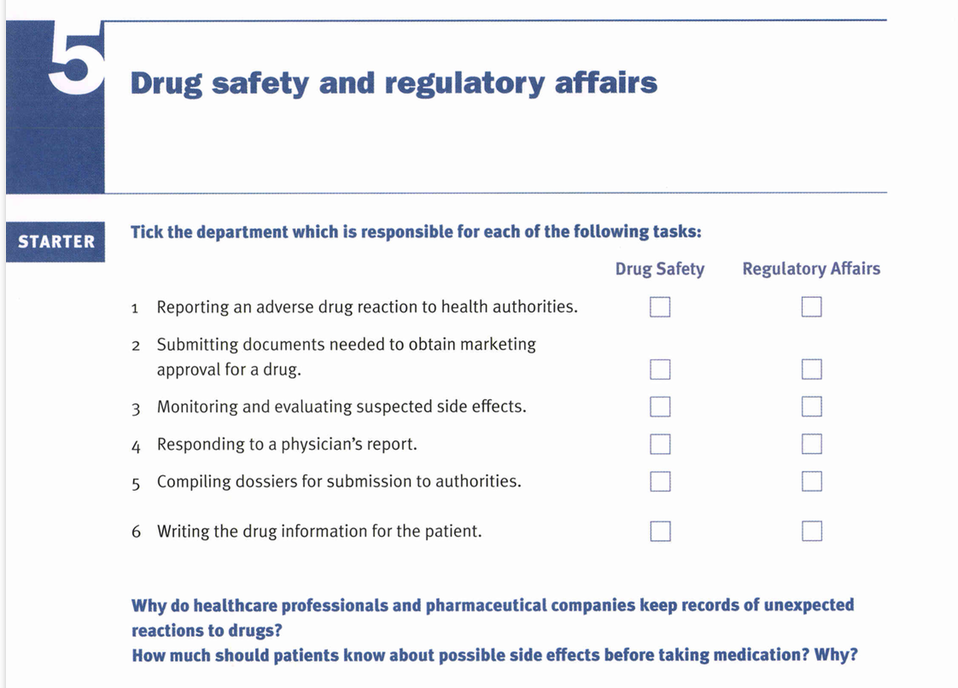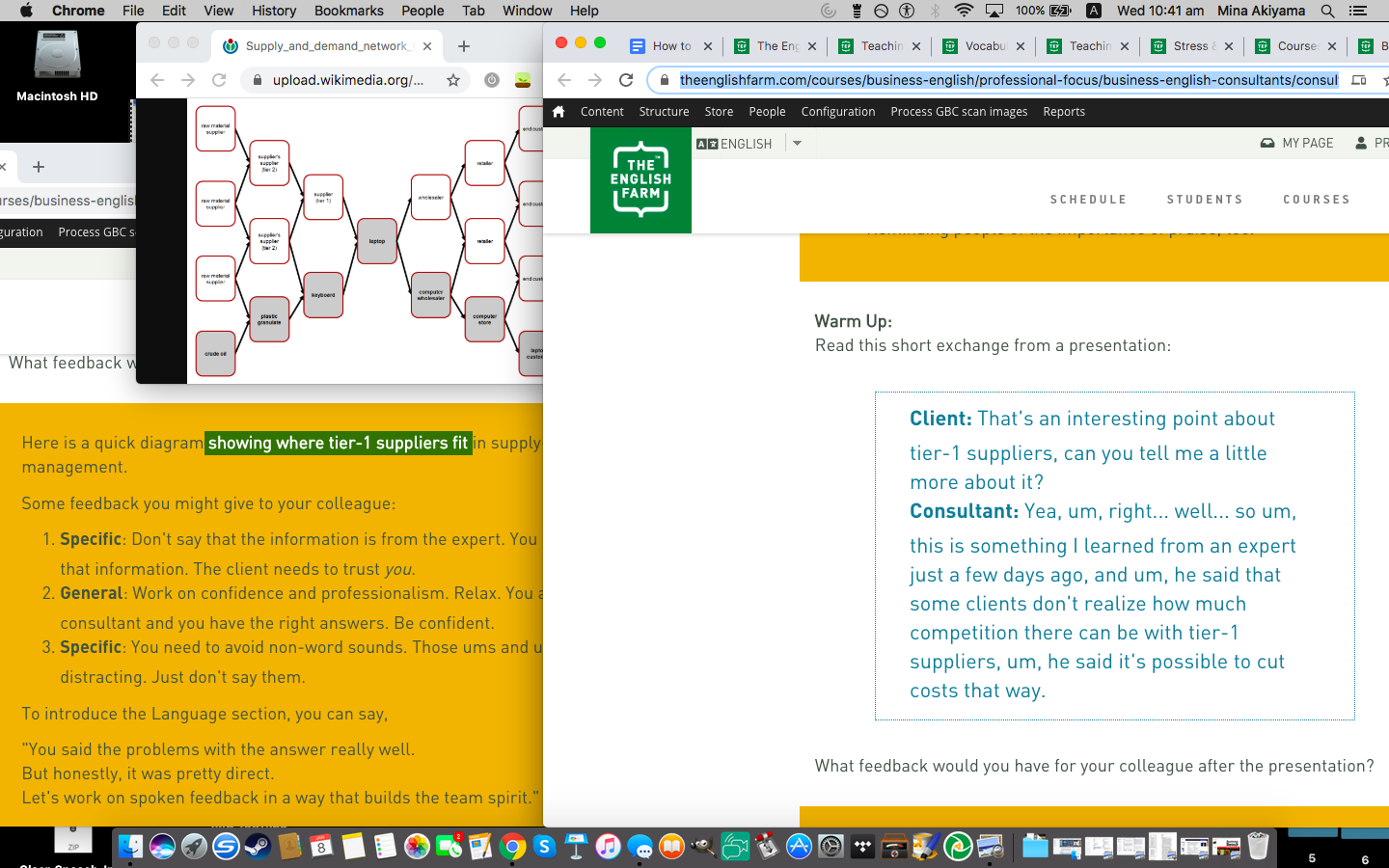Using and not using the teacher's book January/February 2020
Forward
Some very skilled, popular teachers always use the teacher's book. Some occasionally use it, some almost never use it. All approaches are valid.
Over time, most teachers tend to rely on the teacher's book less and less.
Quick tips:
- If you tend to teach with the book, then open the book before you need it.
- The layout of a teacher’s books can vary a little. All rely on you knowing the unit number, section and exercise..
- If the student is wrong according to the teacher’s book, that’s the start of the conversation. Ask why they chose what they did, think about how right it is, any rules or nuances associated with their answer, and why the teacher’s book chose something else.
Principles
- It's a backup, not a go-to.
- Use it to check answers, not supply answers. If the teacher or student don’t know something, it’s best to make a point of learning it, not just find what's correct in this case.
- Do not say, “thus sayeth the book” or any variation thereof. If a student or a teacher doesn’t understand the exercise, then get to the bottom of it.
- It's not infallible or even complete.
- Feel free to disagree with it or partially agree.
- Always build on it.
- It is best to treat the teacher’s book as the third member of the class.
- "Different" can mean many things.
- In other words, there are different types of wrong:
- Not wrong at all, just different from the teacher’s book.
- Right grammatically, but wrong in context/the wrong meaning.
- Right grammatically, but with the wrong nuance.
- They made an error, but they know the right answer.
- They don’t know the right answer at all and need to be taught.
- In other words, there are different types of wrong:
Cases 1 and 2 deal with aspects of English that might come up in lessons. After that, cases 3 and 4 will deal with professional skills.
Aspects of English
Case 1—Business Results Advanced
How would you teach exercise 6, and how much would you use the teacher's book?

Case 2—Business Results Advanced first edition
Let's look at exercise 6 below. How would you teach it, and how much would you use the teacher's book? 
What are some issues that might make teaching this difficult? What are potential solutions that don't involve leaning on the teacher's book?
Potential issues might be that there is a lot of reading or listening, a lot of nouns collocate with those verbs, and collocations tend to be pretty tough for students.
Potential solutions might be to assign it for homework, to accept more than one correct answer (use a Google popularity search to check collocations) and to move slowly with plenty of support.
Professional skills
Case 3—English for the Pharmaceutical Industry
This is the beginning of unit 5. How would you teach it?

Question: what’s the point of this activity?
A) To understand Drug Safety and Regulatory Affairs.
B) To finish as quickly as possible.
C) To discuss Drug Safety and Regulatory Affairs and how it relates to the student’s job.
With that in mind, let’s think about approaches to this.
First, regardless of whether or not you know it, you should always ask the student about tough topics that come up. If you don't know about them, you learn for next time. If you do, you can help them explain better or ask pointed questions. Good teachers always ask regardless of the nature of the material or their knowledge of it.
Personally, I do not know the difference between Drug Safety and Regulatory Affairs. What can I do?
- First, ask the student.
- While the student is talking, Google it.
- If that goes well, we will come to an understanding quickly.
- If it doesn’t, we have to figure it out. That’s okay.
Why is it okay to admit we don't know and figure it out?
- We don’t need to know specialized knowledge. We are English experts, not necessarily pharmaceuticals experts.
- Students love talking about specialized topics. You can practice making complex sentences with their specialized vocabulary about topics that are important to them. Explaining key topics in English is very, very important.
- We can learn about new things. Ideally, you will only have to go through each learning curve once. Then, you can use it to impress future students in that field.
Finally, because it’s important to get the right answers too, we can check the end of the book to see if what we have figured out is correct. This is on page 84.

Case 4—Business English for Consultants
Tip: For TEF books that have a lot of teacher's notes, you can use two browser windows to view both at the same time.
This is from Consulting 6.3 Evaluations: Giving spoken feedback. How would you teach the Warm Up?

Using all the tips and principals mentioned so far, how would you approach this with the student?